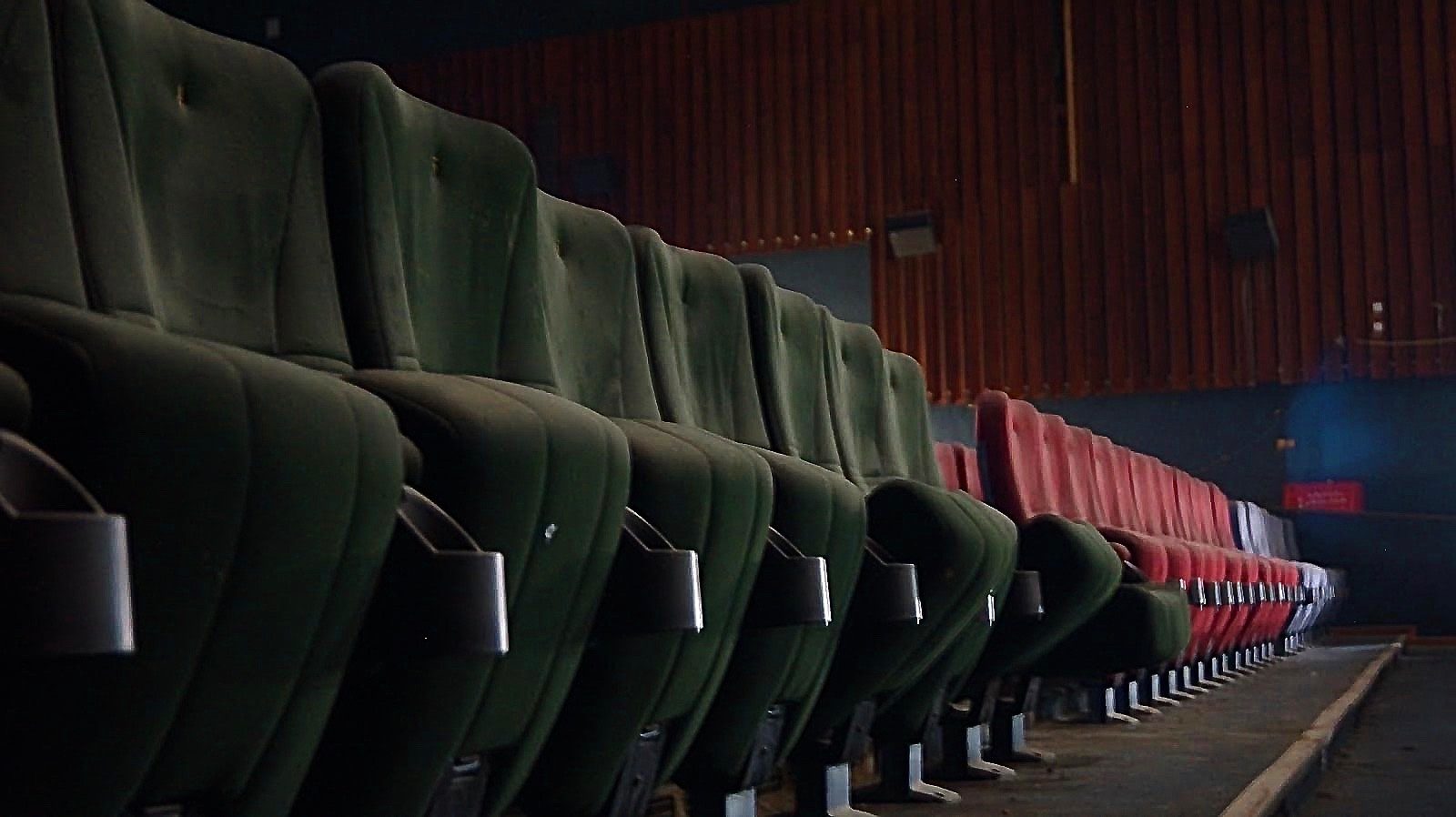Lights out, projectors off, curtains close.
Long before spacious movie theatres and large screens, watching films was a little different. In fact, films had to physically travel from place to place to be viewed and enjoyed by the public.
In Qatar, the place that pioneered the local introduction of cinema, a building once flooded with film enthusiasts, aisles smelling of freshly-made popcorn, and lines piling up in front of ticket boxes, is now completely deserted.
It has been seven years since Qatar’s Gulf Cinema, the first operating movie theatre in the country that had been showing films since 1972, closed its curtains.
Doha News took a trip back down memory lane to visualise how this iconic building, situated near the Old Airport, for several decades served Qatar’s residents as a prime location and source of entertainment, laughter and now a bank of distant memories.
Though valuable to the elders of the community, the building brings back memories for the younger generation too. It’s safe to say even the young ones know a little about this cinema through stories from their parents. Almost immediately, the sight of the old building prompts joyful flashbacks for all that lay eyes on it.
The building is dark and deserted with streaks of light entering through its large windows. An old worn out Antica Cafe sits in the centre of the room, donning images of menu items. Fries, nuggets and chicken fillet seemed to be popular cinema snacks decades ago. On the counter, an empty popcorn machine rests covered in dust.
Read also: The show goes on: Ajyal introduces ‘drive-in cinema’ for this year’s festival
Qatari national Ghadeer, who spent most of early childhood in the movie screens of London, says it’s strange to see fast food being served as a movie snack in film theatres.
“I remember begging my dad for a chicken fillet, it was so good! It was so weird…imagine burgers at the cinema?” she told Doha News of her first visit to Qatar Gulf Cinema.
For Ghadeer, the cinema was the first real introduction to the region’s theatre and film production experience.
She visited the cinema at the tender age of five while she lived in London. Her dad, who lived in Qatar, took all of his children to Gulf Cinema on their visits to Doha. Ghadeer attended a Kuwaiti play with various prominent actors, including Hassan Al-Ballam, she remembers.
“I was so confused as I got used to Broadway, which was so different in terms of their acting style. The actors here would start laughing and jumping off the stage to interact with the audience. It was a culture shock,” said Ghadeer.
Along the route to the cafeteria, dusty, empty ticket boxes stand alone with no ticketer in sight.
The walls, once flamboyant and decorated with movie posters, are now plain and dull.
In its heyday, queues to enter the cinema would extend all the way out to the entrance. Lines of excited Qatar residents itching to watch the next big blockbuster movie or play would be a common sight on Thursdays and Fridays – the specified weekend days before it was changed to Fridays and Saturdays in the early 2000’s. 
Once inside the theatre itself, more than 1,000 seats lay perfectly in wait for the next screening. The old chairs are wrapped in green or red material and the room is void of any light.
On the stage, a blanket of dust covers the platform – once the highlight of this building. It is here where actors from around the region would entertain and connect to residents of Qatar, and where the love of theatre was sparked for the elders of the community.
Read also: Ajyal Film Festival returns in an ‘exceptional’ online edition
One can only wonder how many relationships were formed here, how much was learned here and what dreams may have been inspired while sitting in these chairs. For Ghadeer, this place signals her introduction to other Khaleeji cultures.
“I regret not taking advantage of it and going to Villaggio instead,” Ghadeer said, reflecting on all the places that played a crucial cultural role in the country before large shopping malls became the norm.
This seems to be a popular thought. While the cinema closed in 2013 to accommodate the Metro construction, the Qatar Cinema & Film Distribution Co. says it is Now undergoing renovation for a possible return.
Historical background
Film screenings began in Qatar in the early 50’s but became more widely distributed in the 60’s when people across Doha watched movies from car garage workshops. Distributors from around the world would arrive in the country while carrying films and projectors to provide a cinematic experience wherever suitable.

Gradually, cinemas began to open in recreation and sports clubs until the eventual establishment of official film theatres. In 1970, Qatar Cinema & Film Distribution Co. was established and founded the country’s first two cinemas: Doha Cinema and Gulf Cinema.
The theatres had a capacity of 2,000 seats and regularly pulled in a large turnout despite the introduction of televisions at home. However, the industry faced challenges in the 1980’s with the emergence of VHS tapes and subsequent easy access to films.
This continued until the 90’s, when cinemas began providing newly-released films from around the globe, including prominent Bollywood movies and some from the western parts of the world.

But when films were not being projected, plays conquered the stage a nd the theatres maintained its loyal audience turnout. In fact, due to the large number of moviegoers, Gulf Cinema’s 1093 seats were at one point inadequate and an additional 400 chairs were added.
Now, these same seats are now empty, lifeless and awaiting once again to be revived to serve Qatar’s younger generation, as was the case for their parents and grandparents.
Follow Doha News on Twitter, Instagram, Facebook and Youtube







